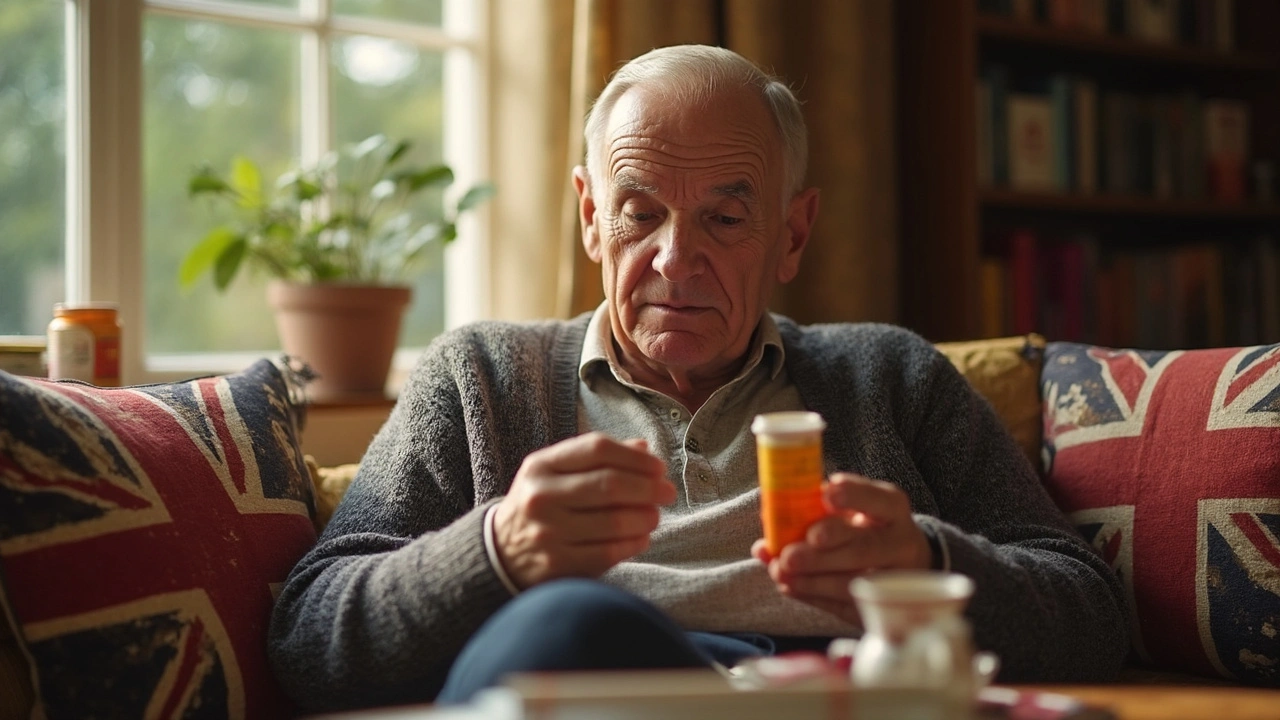Parkinson's Disease: Symptoms, Treatments, and Practical Tips
Parkinson's disease can turn everyday moments into unexpected challenges. If you've noticed a resting tremor or your movements slowing down, you're already familiar with how disruptive these symptoms can be. Stiff muscles, shuffling when you walk, and changes in speech—these are all classic signs. But Parkinson's isn't just about the body. It can affect mood, sleep, and even memory. Understanding the basics makes a huge difference in managing symptoms and making daily life easier.
Your first question might be about what causes all this. Simply put, Parkinson's disease happens when certain brain cells that make dopamine start to die off. Dopamine helps control muscle movement, so when it drops, movement gets harder to start, stop, or control. The cause of this cell loss isn’t fully understood. Genetics play a part for some, and environmental factors matter too, but for most people, there’s no clear reason why it starts.
Now, onto treatment. Doctors often prescribe medications like Levodopa, which helps restore dopamine. It’s still the mainstay of treatment for most patients. Other options like dopamine agonists or MAO-B inhibitors can help too. Each medication comes with its own benefits and potential side effects—like drowsiness, nausea, or even confusion if the dose is too high. It’s common to need a mix of pills to get symptoms under control as the disease changes over time. If medicine stops being enough, deep brain stimulation (DBS) is an option, and some people see big improvements with this surgery.
Let’s talk about everyday life. If getting dressed is tough, try pull-on clothes or zipper pulls. Small changes—adding more lighting, using non-slip mats, or keeping things within easy reach—really help at home. Physical activity matters. Regular walks, stretching routines, or even a dance class can keep muscles flexible and spirits brighter. Speech therapy helps keep your voice strong, and occupational therapy gives you clever tricks for things like writing or buttoning shirts.
Don’t ignore how this slow progression affects your mood, sleep, and social life. Depression and anxiety are common, but therapy and support groups do make a difference. Sleep issues—like insomnia or acting out dreams—are frustrating, so talk to your doctor if you’re tired all the time or your partner complains about restless nights. Medications can help here too.
The hardest thing about Parkinson’s is that it’s different for everyone. Some people manage for years with few changes, while others notice things getting harder more quickly. Early diagnosis and active management (medication plus lifestyle changes) give you the best shot at staying independent longer.
If you’re caring for someone with Parkinson’s, patience is key. Offer help, but let them do things on their own when they can. Trust me, those small victories mean a lot. There are also resources out there, from local exercise programs to online support groups where families share honest tips that go beyond what you’ll find in brochures.
Staying informed helps you keep control. Whether you’re newly diagnosed or helping a loved one, a little knowledge goes a long way. Keep asking questions, stay open to new treatments, and remember—you’re not alone in this.
Artane Uses, Side Effects & Practical Safety Guide: What to Know
Explore what Artane (trihexyphenidyl) is, how it works, its uses for Parkinson's & side effects. Get tips for safety & real-world advice.
